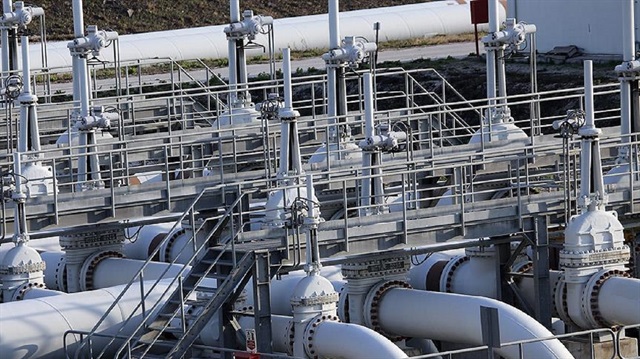
Plans in place to add 21 billion cubic meters per year of regasification capacity by 2019
Turkey will have the highest additional regasification capacity in Europe by 2019, according to Gas Infrastructure Europe's (GIE) LNG Map and Database 2018 on Tuesday.
The report shows that there are currently 32 LNG (liquefied natural gas) terminals in operation in Europe out of which 27 are located in the EU-28 area. These terminals are spread along the coasts of 15 countries.
According to the GIE statistics, these terminals offer a total regasification capacity of 228 billion cubic meters annually (bcm/y) and 211 bcm/y for EU-28.
In addition, 5 bcm/y are under construction in Europe while several other projects are planned, however with little indication on their progression, the GIE noted.
The statistics revealed that Turkey, which has a current regasification capacity of 17 bcm/y, will add 21 bcm/y of regasification capacity by 2019 with the Floating Storage Regasification Units (FSRU) projects in Iskenderun and Saros Bay.
Thanks to these projects, which are planned to become operational by 2019, Turkey will become the country, which adds the highest regasification capacity in Europe.
Turkey will be followed by the U.K. with 17 bcm/y of additional capacity, to add to the current 48 bcm/y of current regasification capacity.
Lastly, Poland and France will follow the U.K. with a combined total of 11 bcm/y of additional capacity, on top of the current capacities of 5 bcm/y and 34 bcm/y, respectively.
"The energy sector is undergoing a transformation to a lower carbon energy future like never before. Policy attention is given to air quality, global emissions and accelerated energy transition post-COP21 [Paris climate conference in December 2015]," GIE said in a statement on Nov. 12.
"Natural gas is the least emitting air pollution fossil fuel and as well as the best complement to variable renewables (wind, solar) thanks to the high flexibility of the gas-fired power plants," it added.
Natural gas can deliver solutions to address climate change and make a clean future a reality as it produces at least 40 percent less greenhouse gas emissions than coal when generating electricity, the GIE noted.
LNG, the super cooled natural gas, is essential in helping clean energy transitions and once regasified, is also a clean alternative fuel for marine, waterway and road transport, the association underlined.
LNG has zero sulphur almost zero fine particles and about 90 percent less nitrogen oxide emissions, according to the GIE.
"Rapid developments in this sector are seen on the horizon. According to International Energy Agency, LNG is expected to make up almost 90 percent of additional gas trade by 2040. Gas LNG Europe (GLE) members welcomed the Paris Agreement and they are convinced that the LNG industry can help turn words into action and meet the COP21 commitments," the organization concluded.
A total of 195 countries adopted the first-ever universal, legally binding global climate deal in 2015.
The agreement sets out a global action plan to put the world on track to avoid dangerous climate change by limiting global warming to well below 2 degrees Celsius.
Hello, the comments you share on our site are a valuable resource for other users. Please respect other users and different opinions. Do not use rude, offensive, derogatory, or discriminatory language.
The floor is all yours.










